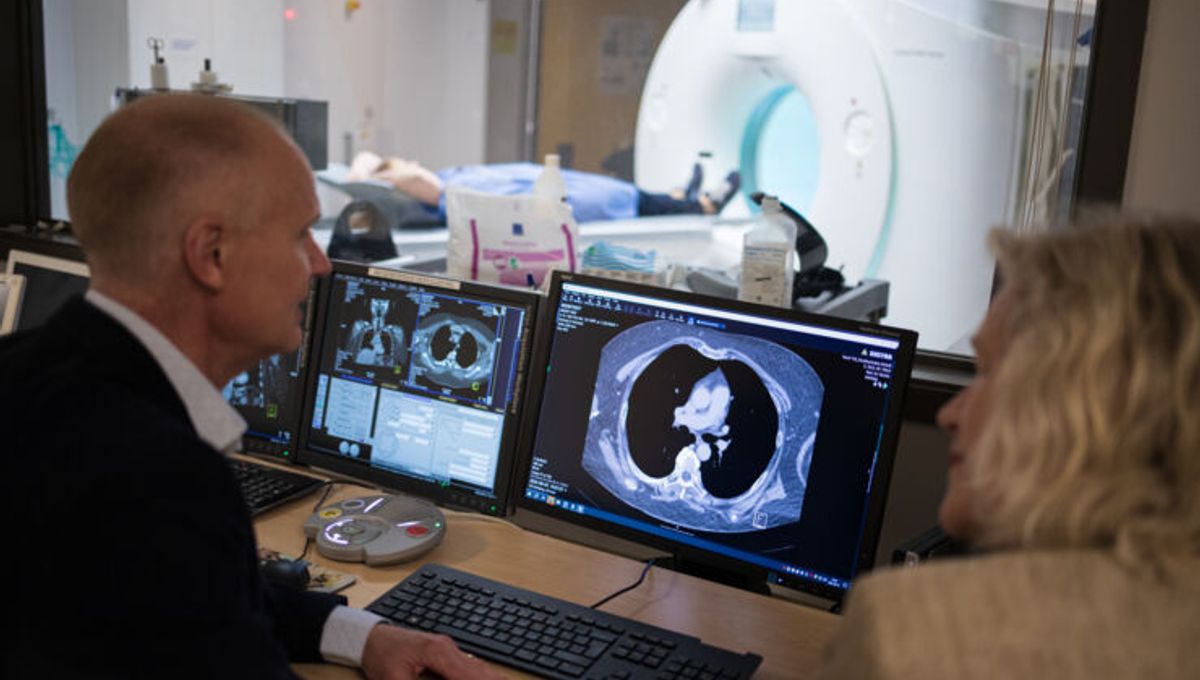
Have you heard of the thymus? New research suggests it’s high time we paid more attention to it, after finding that a computerized tomography (CT) scan of the oft-forgotten organ can uncover immune system aging.
The thymus is a small organ located in the upper part of the chest and is home to immature T-cells, the immune cells which grow up to play a critical role in the part of our immune system that adapts and responds to new “invaders”. This is important primarily for immune system development in children.
After puberty, the thymus appears to take an early retirement; it gets smaller and is replaced by fat. As a result of this process, known as fatty degeneration, it’s generally considered to be unimportant in adult life – but after a series of studies in animals, and now one in humans, scientists have revealed this may not be the case after all.
“We doctors can assess the appearance of the thymus from largely all chest CT scans, but we tend to not see this as very important. But now it turns out that the appearance of the thymus can actually provide a lot of valuable information that we could benefit from and learn more about,” said Mårten Sandstedt, an author of the new study, in a statement.
Researchers analyzed 1,048 CT scans from individuals aged 50 to 64, all of whom were participants in the Swedish cardiopulmonary bioimage study, or SCAPIS. Analysis of the scans also considered data such as diet and physical activity, as well as examination of immune cells in participants’ blood.
The results showed that those with fatty degeneration of the thymus, as shown by the CT scan, also had lower T-cell regeneration, an indicator of immune system aging.
“This association with T-cell regeneration is interesting. It indicates that what we see in CT scans is not only an image, it actually also reflects the functionality of the thymus,” explained Lena Jonasson, another of the study’s authors.
They also found that other factors, such as age, sex, and lifestyle, affected the appearance of the thymus.
“We saw a huge variation in thymus appearance. Six out of ten participants had complete fatty degeneration of [the] thymus, which was much more common in men than in women, and in people with abdominal obesity. Lifestyle also mattered. Low intake of fibres in particular was associated with fatty degeneration of [the] thymus,” said Sandstedt.
Understanding external factors such as lifestyle could hold the key to controlling how our immune system ages.
“You can’t do anything about your age and your sex, but lifestyle-related factors can be influenced. It might be possible to influence immune system ageing,” Jonasson suggested.
The study is published in Immunity & Ageing.
Source Link: Immune System Aging Can Be Seen With A Simple Scan